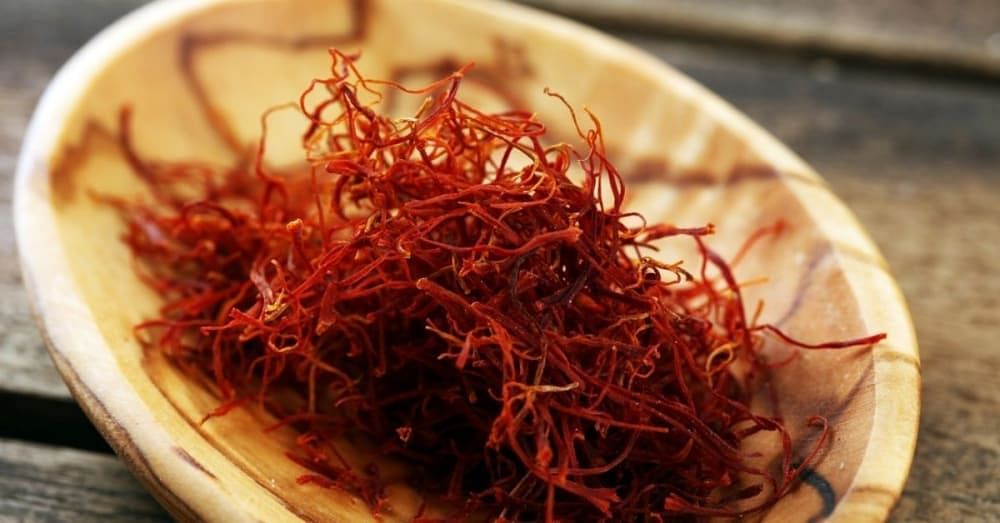Women who have roots in cultures in which Kesar is a commonly used spice might have already encountered advice about Kesar’s benefits during pregnancy. But what exactly is Kesar? Read on to know about this unique spice, along with its benefits and side effects during pregnancy.
What is Kesar (Saffron)?
Also known as saffron, Kesar is a spice that comes from the saffron crocus plant. A large amount of Kesar’s world supply comes from Iran. Other countries where this spice is grown include India, Greece, and Morocco.
This unique spice is known for its antioxidant properties. Due to the labour-intensive process involved in growing and harvesting it, Kesar is considered one of the most expensive spices in the world. But is saffron safe during pregnancy? Let’s understand.
Is Saffron Safe During Pregnancy?
Individuals in India, especially those residing in rural areas, are very particular about their food choices. That is why certain food items get approval during pregnancy from them while others don’t. One food item that gets acceptance in rural areas is Kesar.
The reason for that is the belief that saffron makes a baby’s skin lighter and fairer. That is why Kesar milk in pregnancy has been so popular. However, that isn’t the only reason. Individuals also feel that using saffron is safe during pregnancy as it is believed to relieve some common pregnancy symptoms such as cramping.
However, some existing research shows that it’s best to avoid Kesar during pregnancy. In a study conducted in 2014, it was found that miscarriages rates were higher in female farmers who were exposed to spices like saffron in the first trimester of pregnancy. So, in a nutshell, while Saffron is safe during pregnancy, it is not completely safe and should be avoided without consulting a healthcare professional. Read on to know more about the numerous benefits of Saffron during pregnancy, along with the side effects and the best period to consume it during pregnancy.

Benefits of Saffron During Pregnancy
Though studies show saffron might not always be safe during pregnancy, due to its medicinal nature, Kesar or saffron may even be highly recommended during pregnancy. Here are the benefits of Kesar in pregnancy:
1. Manages Blood Pressure
The heart rate of an expecting woman can speed up by 20-30% during pregnancy. It can cause fluctuations in blood pressure. Saffron helps lower blood pressure due to the presence of crocetin and potassium.
2. Aids in Digestion
The slowing down of the digestive system is common during pregnancy. That is why expecting mothers require stimulating agents to ease the process. Kesar boosts the blood flow to an individual’s digestive system. So, it helps to enhance metabolism. It, in turn, will aid in better digestion.
3. Helps Reduce Mood Swings
Pregnancy comes with its fair share of mood swings. Women in such a scenario can go from being emotional to exceedingly cranky in split seconds. To help manage these mood swings, saffron can be super handy. In addition to boosting the blood flow to your brain, Kesar also acts as an antidepressant. The hormone serotonin is produced when an individual consumes this spice that can help elevate your mood. Moreover, it also helps reduce cortisol, the stress hormone.
4. May Calm Morning Sickness
Morning sickness leaves pregnant women feeling lethargic and dull. They can combat this, along with nausea and dizziness, by consuming Kesar-infused tea. It soothes the digestive system and relieves morning sickness when consumed in limited quantities.
5. Aids in Better Sleep
One of the significant benefits of Kesar during pregnancy is that it aids in better sleep. It becomes harder and harder for the expecting mother to sleep as the pregnancy progresses. Cramps, discomfort, and pain become more rapid with every subsequent month. During this time, saffron-infused milk can be super beneficial. Kesar contains mild sedatives that can enable you to feel relaxed and promote sleep. As a result, it facilitates good sleep.
6. May Heal Skin Problems
There is no evidence to prove this, but many individuals believe that saffron helps with skin problems. Pimples, acne, and melasma are some skin troubles pregnancy causes in women. As saffron is a blood purifier, it may help heal such skin problems.
7. May Protect Against Heart Disease
During pregnancy, women tend to consume way more fatty acids than required. They do that to satisfy their enhanced appetite. The issue with this is that it can have a detrimental effect on their cardiovascular system.
Kesar contains potassium, antioxidants, and crocetin that help reduce cholesterol and triglyceride levels in your body. As a result, it may help protect you against heart diseases.
Now that you know Kesar benefits in pregnancy let’s get into the different ways of consuming it.

Ways To Consume Saffron During Pregnancy
While saffron is safe to use during pregnancy, it should be consumed in limited amounts only. Plus, expectant mothers should know the correct ways to have it. Here are some of the uses of saffron during pregnancy.
1. Kesar Milk in Pregnancy
One of the most vital minerals for the development and growth of your baby is calcium. After the fourth month, expecting mothers can add saffron strands to their milk. It’s best to have Kesar milk in the morning.
2. Saffron With Water
Saffron can also be consumed with water. One can add a strand of saffron to the glass of water and have it. This drink helps with digestion as well.
3. Saffron in Rice/Salads/Soup
Crumbled or soaked saffron can be added to rice dishes, soups, and salads to enhance the flavour or to give them a unique colour. 1-2 strands are enough for rice preparation.
Drinking Saffron Milk Everyday Benefits For Pregnancy
There are a few benefits of drinking Kesar milk every day during pregnancy. Read on to know about them.
#1 Helps Reduce Hair Fall
Many women face severe hair fall during pregnancy. The reason for that is hormonal fluctuations. In order to avoid it, women can apply a paste of milk, saffron, and liquorice. Moreover, this paste will also help stimulate hair growth.
#2 Relieves Muscular Cramps
Many expecting mothers complain of muscular cramps during pregnancy, especially in the third trimester. Due to its antinociceptive and anti-spasmodic properties, Kesar milk can help relieve excessive contractions in the muscles. Plus, it also helps relax the joints.
How To Prepare Saffron Milk
Saffron or Kesar milk is made by soaking a few saffron threads in milk and adding sweetening substances like cardamom or almonds. Expecting mothers out of their first trimester can relish this healthy drink.

Side Effects of Saffron
There is no doubt that Kesar is good for pregnancy in a general context. However, Kesar has its fair share of side effects despite the numerous benefits. Here are some of the side effects that saffron can cause if consumed in high doses.
1. Vomiting
Excess consumption can cause vomiting in some women. It can deprive a woman and her baby of essential nutrients. It’s best to avoid it altogether if you’re allergic to it.
2. Dizziness
Due to its sedative properties, consuming Kesar in high quantities can cause dizziness.
3. Allergic Reactions
Numerous expecting women are sensitive to certain foods like Kesar. If you’re one of them, avoid eating saffron altogether.
4. Miscarriage
Kesar tends to increase body temperature and heat. That can lead to increased uterine contractions. That is why consuming it can result in miscarriage in the early weeks of pregnancy. It’s best to start saffron’s consumption from the second trimester.
5. Hypersensitivity
Another possible side effect of consuming saffron during pregnancy is hypersensitivity. It showcases itself in forms like dry mouth, headache, or anxiety.
If you face any of these problems, stop the consumption of Kesar immediately.
From Which Month Can Saffron Be Taken During Pregnancy?
Expecting mothers can start taking saffron in the recommended dosage from the second trimester as consuming it in the first trimester can lead to side effects. To be safe, it’s best to avoid Kesar for the first 12 weeks.
As per Ayurveda, women should only start consuming saffron after the fourth month of pregnancy when they start feeling the baby’s movement in the womb.
Can Saffron Cause Miscarriage?
While saffron is safe to use during pregnancy, exercising caution is a must. A large amount of amount can enhance the chances of miscarriage. As per a study, devouring large doses of Kesar (greater than five grams per day) should be avoided as it stimulates the uterus.
That is why when it comes to consuming saffron in pregnancy, consulting a gynaecologist first is ideal. Only when they give you the green light for a particular amount should you go forward.
Does Saffron Change The Colour of Your Baby’s Skin?
One of the reasons for people embracing Kesar is its purported effect on the baby’s skin tone. Many cultures hold that this spice makes your baby’s skin lighter. That said, there is no scientific research to back this belief. So, if you want to, consume saffron during pregnancy but for the right reasons.
Summing Up on Kesar/Saffron in Pregnancy
Saffron or Kesar is an exceedingly beneficial spice that one can add to their diet during pregnancy. However, it’s best to stay safe and consult a gynaecologist for the recommended dosage. As everyone’s body is different, it’s best to consume Kesar in the quantity your body allows.
References
- Samad Ghaffari, January 2019; Saffron; An updated review on biological properties with special focus on cardiovascular effects - https://www.sciencedirect.com/science/article/pii/S0753332218335753
- Amin Mokhtari-Zaer, Mohammad Reza Khazdair, October 2015; Smooth muscle relaxant activity of Crocus sativus (saffron) and its constituents: possible mechanisms - https://www.ncbi.nlm.nih.gov/labs/pmc/articles/PMC4599118/
- Giuseppe Carlucci, Giuseppe Chichiriccò, 2012; Anti-inflammatory properties of drugs from saffron crocus - https://pubmed.ncbi.nlm.nih.gov/22934747/











